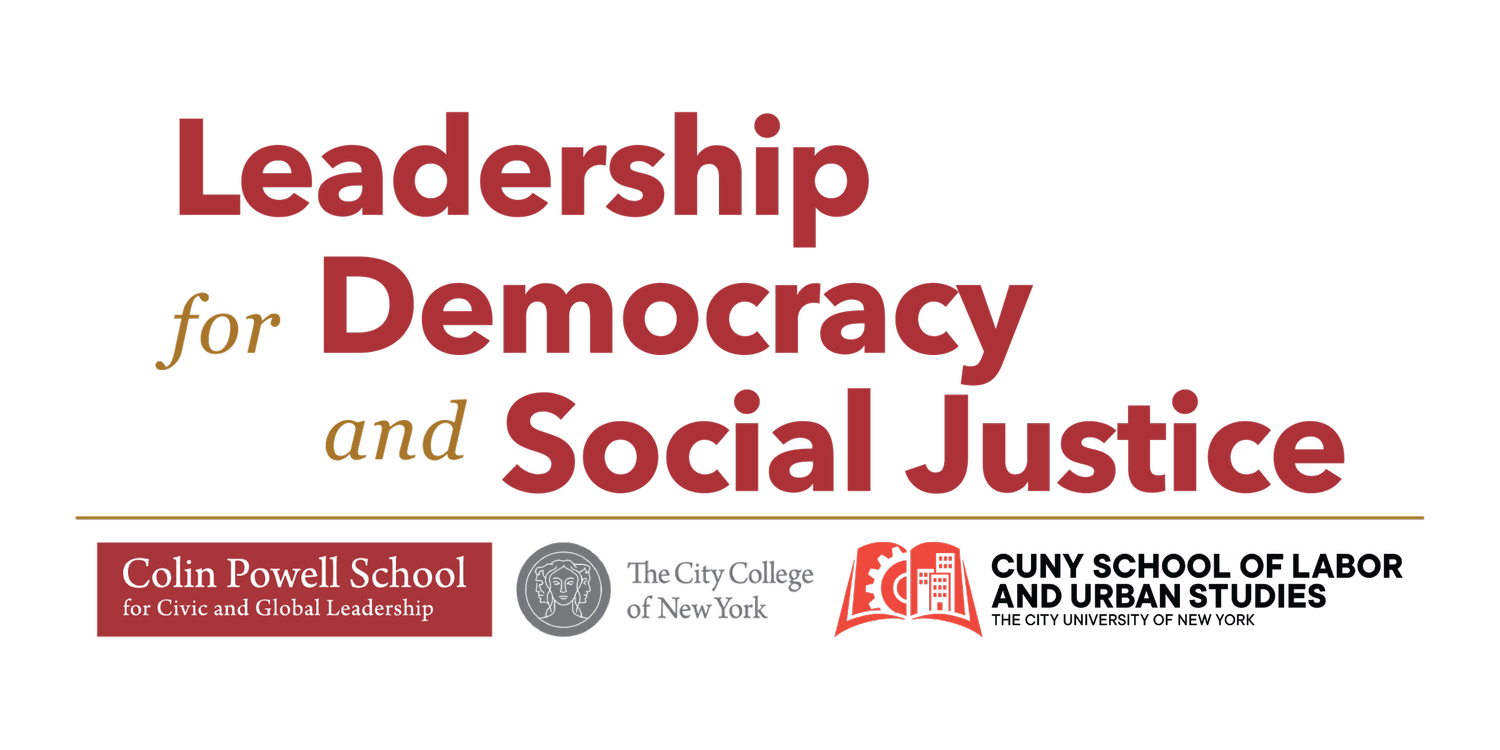Building Power with a Next Generation of Social Justice Leaders
Leadership for Democracy and Social Justice (LDSJ) is an institute of the Colin Powell School for Civic and Global Leadership at City College of New York and the CUNY School of Labor and Urban Studies.
Existing models of leadership in social justice are often tied to one theory of change or a single community of practice, whether that’s street protests, workplace organizing, or lobbying on Capitol Hill. But a new generation of leaders needs to fight for power across movements, theories of change, and disciplines––both from outside and inside existing institutions.
Leadership for Democracy and Social Justice is an institute created and led by movement leaders with experience and investment in grassroots organizing. We support diverse cohorts of leaders from the communities at the forefront of social justice movements understand how to build lasting power and use it for our collective liberation.
Why Us and Why Now?
A truly inclusive and multiracial democracy is only possible if those most affected lead the movements for change. The good news is that there is an inspiring wave of emerging talent from diverse backgrounds with the potential to lead the social change we need. We aim to equip them with the training, support, and community they need to create large-scale change.
Leadership for Democracy and Social Justice offers dedicated training, mentorship and development to movement leaders. It draws from nationally recognized universities, an advisory board of established leaders and thinkers across movements, a dedicated staff with a wealth of experience in social justice, and a growing cadre of fellows themselves.
What We Do
-
We need to build power with people of color, women, LGBTQ+ people, people from low-income and working-class backgrounds and those most affected by injustice to effect social change.
-
A young, diverse cadre of emerging leaders want to establish careers inside and outside existing institutions as they help their communities build and use power.
-
Leadership must draw from multiple disciplines and theories of change to be effective. Our programming emphasizes history, theory, practice, intersectionality and collaboration.
-
Leaders want to learn about how to build, use and exercise power in multiple contexts, from the streets to the halls of legislatures.
-
Leaders are connecting with one another to foster collaborations across identity, geography and causes because all of our struggles are fundamentally connected through power.
